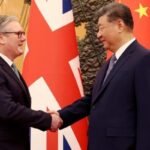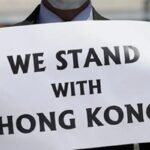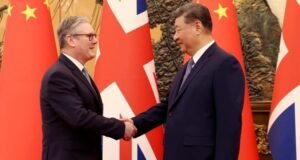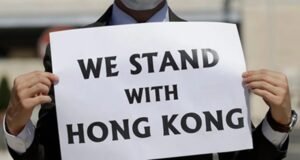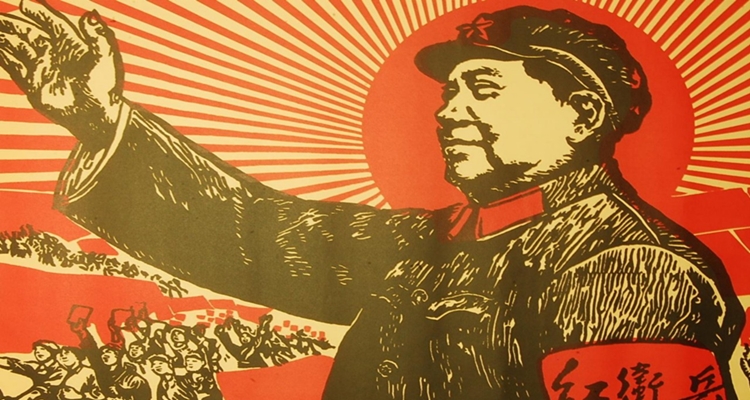
On May 30, 2025, communist China launched a new global institution, the International Organization for Mediation (IOMed). There was not much coverage of this in the United States, even though 32 nations signed on in a ceremony pulling in 400 representatives from 85 countries and 20 international organizations.
First ever
ABC News, one of the few U.S. outlets with interest in IOMed, reported that Beijing “has touted the organization as the world’s first intergovernmental legal organization for resolving disputes through mediation, saying it will be an important mechanism in safeguarding the principles of the Charter of the United Nations. It also positioned Hong Kong as an international legal and dispute resolution services center in Asia….
“Shahla Ali, a law professor at the University of Hong Kong, said the International Organization for Mediation would have the capacity to mediate disputes between states, between a state and a national of another state, or in international commercial disputes.”
“The world’s first intergovernmental legal organization for resolving disputes” is on odd claim given that “The International Court of Justice—the principal judicial organ of the UN, also known as the World Court—is currently the top body for solving legal disputes between member states in accordance with international law.”
The UN seemed unperturbed by this slight. Undersecretary Junhua Li said, “On behalf of the United Nations and the Secretary General, I warmly congratulate and commend all parties involved. This marks a significant step forward, towards a more peaceful, just and sustainable world, as enshrined in the Charter of the United Nations.”
Also, peaceful
So one thing that IOMed has going for it is that it is “peaceful.” That word keeps coming up. China Global Television Network:
In addition to its peaceful nature, IOMed offers a more flexible, cost-effective and efficient approach to dispute resolution for all parties, especially for developing countries. It will complement existing international dispute mechanisms like litigation and arbitration.
“The IOMed addresses one of the key criticisms of current mechanisms: that they are often inaccessible, expensive and tilted in favor of wealthier nations. This new court is explicitly designed to be different. Its procedures are accessible. Its emphasis on neutrality and non-coerciveness ensures fairness,” said Xu Ying, a Beijing-based international affairs expert. He believes that the creation of IOMed represents a necessary evolution in global dispute resolution.
The Brookings Institute offers a few points of interest:
● IOMed is “dedicated to a legal, voluntary, and nonbinding process of mediating international disputes that are political and economic in nature.”
● “Mediation by IOMed is voluntary and based on the consent from the parties involved, and its result is nonbinding.”
● “China’s goals with IOMed are multifaceted but primarily focused on reforming global governance and addressing international economic disputes.”
Hong Kong’s new future
Oh and one more thing, “basing IOMed in Hong Kong will also help push the city’s evolution from the ‘international financial center’ it used to be to an ‘international legal service center’…. In an era when the rule of law in Hong Kong is perceived to be in decline, China hopes IOMed will boost Hong Kong’s reputation and image as well as the credibility of China’s governance of the city.”
Hong Kong communists and their fellow travelers seem sensitive on this point. Chief Executive John Lee said IOMed “would also help bring ‘substantial’ economic benefits and job opportunities, as well as stimulate various sectors including hospitality and transport.”
Also, “In an opinion piece published in the South China Morning Post, Hong Kong’s Justice Secretary Paul Lam said IOMed would help Hong Kong cope with challenges presented by ‘hostile external forces’ that are ‘attempting to de-internationalise and de-functionalise’ it.”
Not sure what he’s talking about here, but it doesn’t sound “peaceful.” IOMed HQ is being set up in a former police station and maybe space will be reserved for “hostile external forces” that show up and start de-functionalizing.
It appears that contracting states, perhaps the 32 founding members for instance, will set up IOMed offices, not necessarily all of them placed in police stations; and “the IOMed, its property, and assets [will] enjoy necessary privileges and immunities within contracting states.”
This sounds like diplomatic immunity.
“Representatives and officials [will also] also enjoy such immunities to perform their functions independently. Mediators, parties, agents, counsel, witnesses, and experts generally have immunity from personal arrest or detention and from seizure of personal baggage while performing their functions, as well as immunity from legal process related to their mediation activities.”
Disputes for IOMed
So we have voluntary, nonbinding arbitration that duplicates services offered by the UN, the GATT, the BRICS, what have you, in an organization that took less than three years to organize and that may or may not succeed as a major resolver of disputes. Why bother? What’s in it for Red China?
A few thoughts come to mind.
Inherent in its take-it-or-leave-it justice are low expectations that translate to low risk to Beijing’s prestige if this institution fails. Success, however, will add prestige.
Disputes must be brought to Hong Kong—which puts Red China in the middle of every disputant’s business.
Hong Kong gets a jobs program for local lawyers plus some hospitality business.
IOMed offices worldwide may get some Chinese staff with full diplomatic-style immunity—very useful for spies and such.
These seem like reasonable potential benefits for what seems like a fairly low investment.
Now let’s give IOMed some business by having Red China’s neighbors bring in South China Sea disputes. □
James Roth works for a major defense contractor in Virginia.
Also see:
StoptheCCP.org: “China, the Crazy Neighbor Who Just Won’t Leave People Alone”
